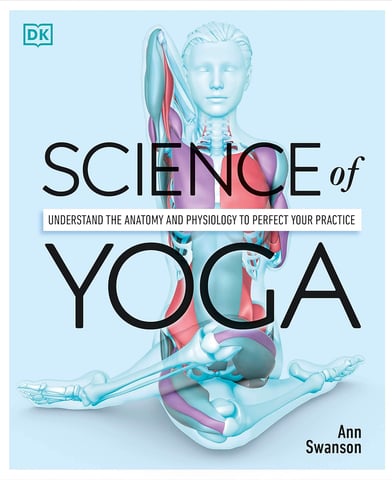How to Fall Asleep Faster: Tips for a Restful Night
10/28/20244 min read
Falling asleep quickly can be a challenge, especially after a long, busy day. Many people struggle with winding down, which can lead to restless nights and low energy the next day. Fortunately, there are proven strategies to help you fall asleep faster and enjoy more restful nights. This guide will walk you through effective, easy-to-implement tips to make your bedtime routine more relaxing and conducive to sleep.
The Importance of Quality Sleep
Getting enough high-quality sleep is essential for physical health, mental well-being, and overall productivity. Quality sleep supports immune function, helps regulate hormones, improves memory, and even influences your mood. By creating a healthy bedtime routine, you’re setting yourself up for a deeper, more restorative sleep.


1. Create a Sleep-Friendly Environment
A comfortable, sleep-friendly environment can make a big difference in how quickly you fall asleep. Here’s how to optimize your bedroom for rest:
Adjust Room Temperature: Most people sleep best in a cool room around 65°F (18°C). Keep your bedroom cool, dark, and well-ventilated.
Block Out Light: Darkness tells your body it's time to sleep. Use blackout curtains or an eye mask to reduce light pollution.
Reduce Noise: If you live in a noisy area, consider earplugs or a white noise machine. Consistent, soothing sounds can mask disruptive noises.
Invest in Comfortable Bedding: Quality pillows, a supportive mattress, and soft sheets create a cozy sleep environment that encourages relaxation.
2. Establish a Calming Bedtime Routine
A consistent pre-sleep routine can train your brain to recognize when it’s time to wind down. Here are ways to calm your mind and body before bed:
Set a Regular Sleep Schedule: Go to bed and wake up at the same time every day, even on weekends, to regulate your body's internal clock.
Avoid Screens: The blue light from phones, tablets, and computers can disrupt melatonin production, making it harder to fall asleep. Try turning off screens at least an hour before bed.
Practice Relaxing Activities: Engage in quiet activities like reading a book, listening to calm music, or practicing gentle stretches. These activities signal your brain that it’s time to sleep.
3. Use Mindfulness and Breathing Techniques
Mindfulness and breathing exercises can relax the body and quiet the mind, making it easier to drift off to sleep.
4-7-8 Breathing: This technique helps reduce anxiety and calm the nervous system. Inhale through your nose for 4 counts, hold your breath for 7 counts, and exhale for 8 counts.
Progressive Muscle Relaxation: Starting from your toes, tense each muscle group for a few seconds, then relax. Gradually work your way up to your head, focusing on releasing tension.
Visualization: Picture a peaceful, calming place—like a beach or forest—and focus on the sensory details. Visualization can shift your mind away from stress and help you relax.
4. Limit Stimulants and Heavy Meals
What you consume before bed can significantly impact how quickly you fall asleep. Here are some guidelines:
Avoid Caffeine in the Afternoon: Caffeine can stay in your system for hours. Limit coffee, tea, and other caffeinated beverages at least 6 hours before bedtime.
Skip Alcohol: Although alcohol might make you feel drowsy, it can disrupt your sleep cycles, resulting in poorer sleep quality.
Eat a Light Dinner: Heavy, rich foods can cause discomfort and indigestion, making it harder to fall asleep. Opt for a balanced, light meal in the evening.
5. Get Moving During the Day
Regular physical activity not only benefits your overall health but also improves sleep quality. Exercise can help you fall asleep faster and stay asleep longer.
Exercise Earlier in the Day: Try to complete workouts at least a few hours before bed to allow your body time to cool down. Vigorous exercise too close to bedtime can have the opposite effect and may keep you awake.
Morning or Afternoon Walks: Exposure to natural light during the day can help regulate your circadian rhythm, making it easier to fall asleep at night.


6. Manage Stress and Anxiety
Stress and anxiety are common culprits behind sleepless nights. Here are a few techniques to help manage these feelings:
Journaling: Writing down your thoughts and worries can help clear your mind before bed. Reflect on positive moments from the day or jot down a to-do list to tackle tomorrow.
Practice Gratitude: Focusing on things you’re grateful for can shift your mind from stressful thoughts to positive ones, promoting relaxation.
Seek Support if Needed: If stress or anxiety is consistently impacting your sleep, consider talking to a counselor or therapist. Sometimes professional support can make all the difference.
7. Try Natural Sleep Aids
If you’re still having trouble falling asleep, consider trying natural sleep aids. Some options include:
Melatonin Supplements: Melatonin is a hormone that regulates sleep. A low-dose melatonin supplement can be effective for people with occasional sleep issues.
Herbal Teas: Teas like chamomile, valerian root, and lavender have calming properties that can help promote sleep.
Aromatherapy: Essential oils, such as lavender or chamomile, can be diffused in your bedroom or applied to your pillow to create a calming atmosphere.
Conclusion
Falling asleep faster requires a combination of healthy habits and a calm, sleep-friendly environment. By incorporating these tips into your nightly routine, you can enjoy a deeper, more restful sleep and wake up feeling refreshed and energized. Remember, consistency is key; the more regularly you practice these strategies, the better your sleep quality will become over time.
Joy
Inspire your journey to happiness and fulfillment.
contact us
Growth
© 2024. All rights reserved.










